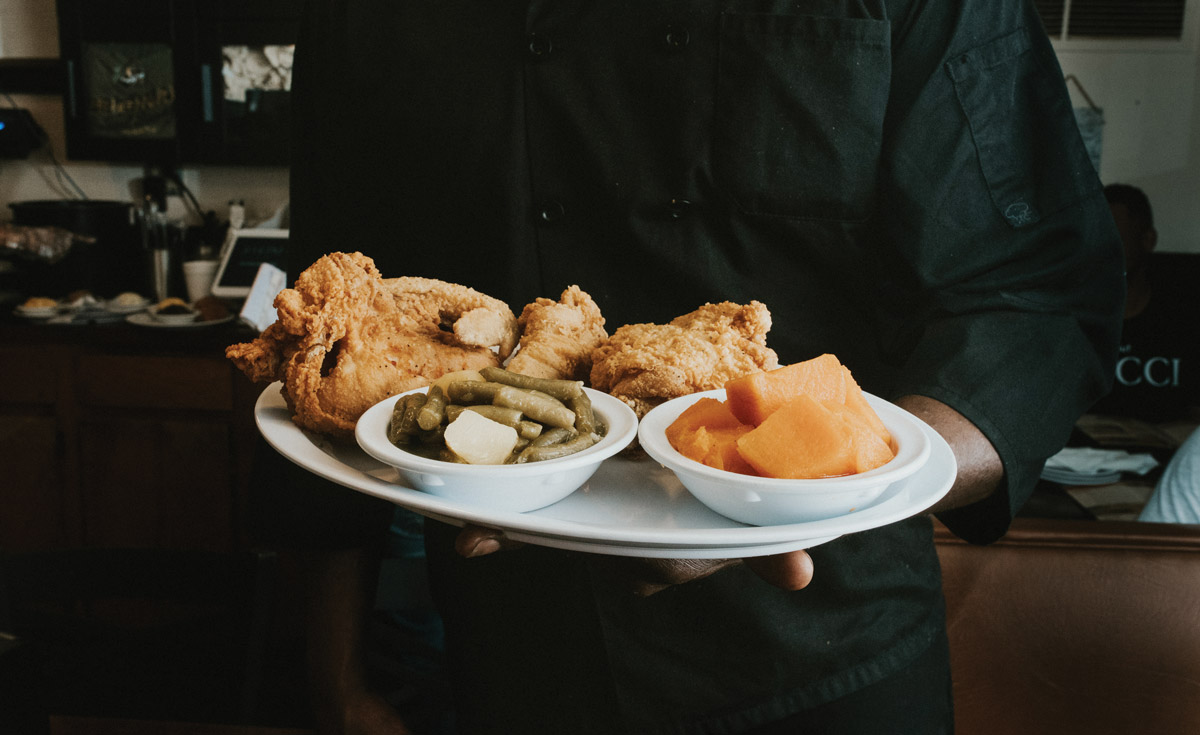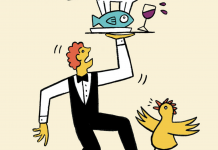
Photograph by Cori Carter
As a child, I wanted to be a librarian. I imagined a safe, orderly life among books and card catalogs. Learning to read had been easy for me. In elementary school, I could barely add but I read compulsively. My grandmother shattered my dream by telling me that if I became a librarian, I would surely end up an old maid. My first career, preschool teacher, was just a bid for emancipation, something I could do to see the world. I thought I’d for sure end up in Morocco (I studied Arabic) or maybe Vietnam (I loved the food).
I taught for several years in the posh 16th arrondissement of Paris, where consular staff often sent their children to public school to learn the language. The American consul sent me fancy chocolates for Christmas. A famous chef invited me for lunch at his mother’s and served me guinea hen. I saw glimpses of a world beyond mine, and I wanted in.
How did I end up in Atlanta? My first husband, the German one, was a corporate lawyer from a military family. He took a job in New York, where I met my second husband, a rich kid from Pittsburgh working as a paralegal. While transitioning from Paris to Greenwich Village in the 1970s had been easy, transitioning a few years later from there to Atlanta, where the object of my affection was attending Emory Law School, nearly killed me.
Nothing had prepared me for a sprawling city with no clearly defined center. My husband had been issued an Emory guide to life in Atlanta, including where to eat pizza (Everybody’s), where to take the parents (Coach and Six), and the best neighborhood for vegetarian fare (Little Five Points). I read the few blurbs voraciously and thought, I can do better than that.
I roamed Atlanta with a mix of desperation and desire to figure out my new world. On foot at first, then by bus, and finally in a light blue 1977 Caprice Classic I kept for 20 years, I pursued new adventures, gobbling up every possible unfamiliar food. I discovered marshmallows, ranch dressing, and grits. I tried my first chicken wing. I fell in love with soul food at Paschal’s Motor Hotel and Restaurant, where I ate fried pork chops and chicken-liver omelets for breakfast.
In the early 1980s, I was teaching at the Alliance Française in Midtown, and my husband wrote hippie-ish articles for Common Cents, a weekly publication about saving money. One thing led to another, and we were asked to recommend restaurants under a shared byline. Eventually, a student of mine, a photographer at Atlanta magazine, introduced me to his managing editor. I’ve now been writing about restaurants for this magazine for almost 40 years.
I learned all there is to know about my profession the old-fashioned way—not by scrolling through other people’s opinions or watching celebrity chefs opine on television, but by hitting the pavement without a plan and with a broad appetite. Now, however, the wandering habits that have served me so well over the decades have come to a screeching and hopefully temporary halt. In this hiatus, I’ve had ample time to return to memories of the restaurant scene of Atlanta’s past.
The Atlanta I first got to know was far more small-town than it is now. Between Manuel’s Tavern, the Varsity, the Colonnade, Matthews Cafeteria, and the amazing Busy Bee (started in the 1940s and now heroically serving its fried chicken for curbside pick up), you can still get a sense of that old Atlanta. More than business acumen or an ambitious chef in the kitchen, a strong current of love between a stubborn restaurant and its clientele seems to be the deciding factor for a place that survives the decades—or, for that matter, a pandemic. La Grotta, which opened in 1978, for the first time ever subsisted for weeks by offering takeout orders of vitello tonnato and risotto di funghi. Its owners reopened the dining room in late May, but the takeout operation continues.
Even though I’m not currently eating at restaurants, I still keep track of what is happening in the community. I maintain my epic list of new restaurants, keeping tabs on recent openings such as Wonderkid (from the Bon Ton and King of Pops teams), Little Bear (from former pop-up star Jarrett Stieber), and the Companion (from chef Andy Gonzales of Steinbeck’s Ale House in Decatur), all of which have robust take-out programs. Wonderkid has pivoted to family suppers and cocktail kits for pickup or delivery, Stieber is doing playful, globe-trotting, multicourse dinners for two to go, and Gonzales hands out fried chicken through the windows of the Companion’s 90-year-old building on the Westside.
I now dream of the brutally hot spicy tofu soup and cheap kimbap I habitually ate at Yet Tuh on Buford Highway as I watch Korean dramas all day on Netflix. I yearn for a thin slice of sausage and onion pizza from Fellini’s, a cheeseburger taco from Taqueria del Sol, and a boozy session accompanied by chicken wings at Poor Hendrix. But I also remember how to live on chickpeas and rice the way I did when I had no money—and when Atlanta didn’t have such restaurants.
This article appears in our July 2020 issue.













